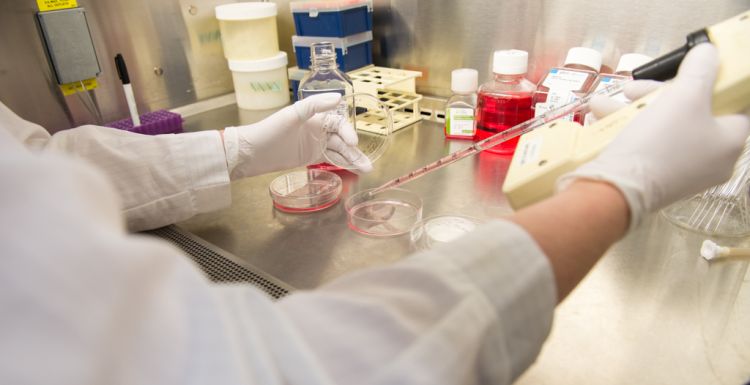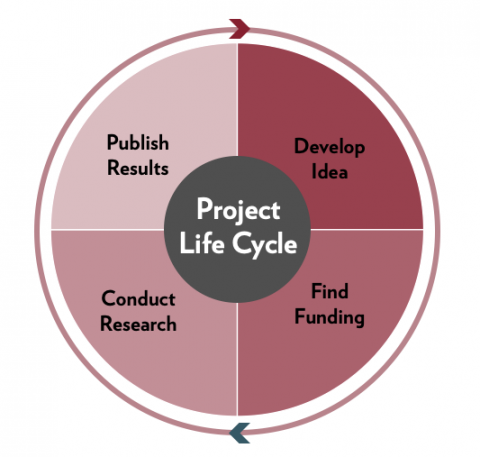How philanthropy advances research

At the Department of Medicine, we conduct research that will advance the medical field. But it takes a lot to make that happen, and it can start with gifts from people who are passionate about finding better ways to treat and ultimately cure disease. Philanthropic gifts contribute to different types of research and help our scientists secure larger grants needed to move research into practice.
Types of research
Basic research, sometimes called fundamental research, acts as the building blocks used to understand fundamental aspects of biology. Basic research forms the foundational principles and theories that will be used to solve a problem.
For example, basic research might explain how the cells within the pancreas work or how an individual protein affects the function of a cell.
Translational research takes basic research, and brings it to a real-world problem. It is used to determine if a treatment works in a model living system before going to human studies.
Here at the Department of Medicine, many of our scientists conduct basic and translational research. One example comes from Dudley Lamming, PhD, associate professor, Endocrinology, Diabetes and Metabolism, who used knowledge from his basic research of how individual proteins affect metabolism to design a study to determine the effects of a low protein diet in mice. He found that this diet helped promote weight loss and improved regulation of blood glucose (sugar).
This finding led Dr. Lamming to team up with colleague Dawn Davis, MD, PhD, associate professor, Endocrinology, Diabetes and Metabolism, to explore whether this diet could help people with pre-diabetes and obesity lose weight, and therefore decrease their risk of developing diabetes.
Clinical research brings successful translational research to human studies. This is where we find out whether the treatment is safe and effective in people.
Drs. Lamming and Davis are part of a clinical research trial to study whether a low protein diet decreased weight and regulated glucose in people. With success, they have recently applied for a grant from the National Institutes of Health to continue this research and study why this diet works. By continuing this and other projects, they hope to identify effective new treatments for diabetes and obesity.
The ability to move research from basic studies to clinical research is incredibly important for advancing biomedical science and is fostered by strong connections between scientists with expertise in complementary areas of research.
Research lifecycle
Securing funding accounts for a large portion of the research process. Once a researcher develops an idea for a project, the next step is to find funding. When the researcher has found a grant to apply for, they will prepare and submit the proposal. If their project is chosen, the researcher will accept the award, and begin setting up the project. Then, they will conduct the research, which can take a number of years. Lastly, researchers will analyze the data and publish the study, which will be used to inform future research.
Why philanthropy is important
While some grants are provided through major funding organizations, researchers also rely on philanthropic contributions for a number of reasons. Sometimes, a grant does not cover the entire cost of a project. Without sufficient funding, the researcher is forced to scale their project down. Other times, philanthropy is needed to help researchers get their work to a promising point to receive a large grant.
The National Institutes of Health (NIH) is the gold standard for most research funding, but it’s extremely competitive. Investigators need robust and sound preliminary data that shows the potential for long-term success before they can apply to the NIH or other major funders. Philanthropy can help support pilot projects that generate that preliminary data. Then, investigators can apply for larger federal and NIH grants to build on their work.
Additionally, NIH has guidelines on what types of projects they can fund. Philanthropy can help investigators explore more creative and novel ideas.
To learn more about how your gift can support research at the University of Wisconsin Department of Medicine, contact Pete Schmeling, Managing Senior Director of Development (phone 608-354-9388 or email pete.schmeling@supportuw.org).